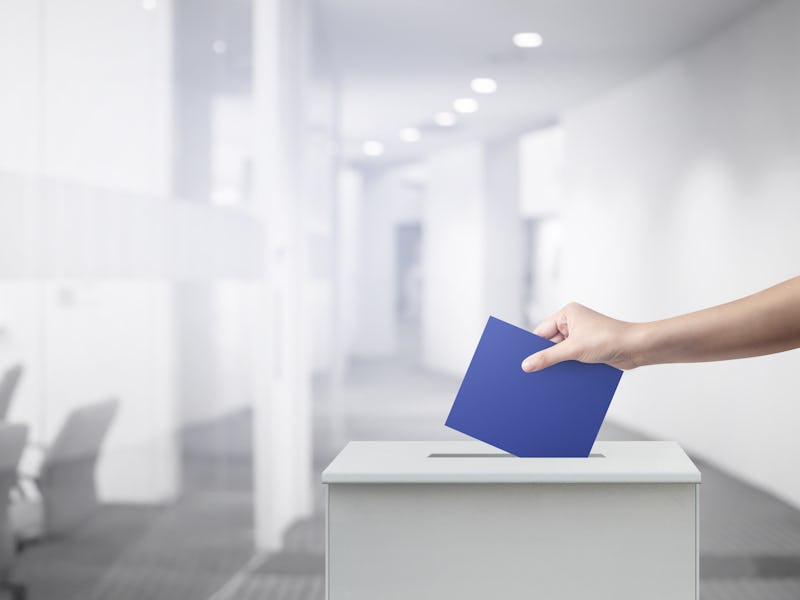New study debunks idea that voting by mail will cause electoral chaos
Politicians on either side of the aisle would have you believe that vote-by-mail could radically change election results. The science suggests otherwise.

The ongoing coronavirus crisis has brought a level of unpredictability to the coming presidential election that is perhaps unprecedented in American history.
Could voting-by-mail change voting patterns and reveal a radically different electorate? A new study into historical voting patterns suggests that the answer is no. If anything, vote-by-mail could actually boost turnout, according to the results.
At worst, voting-by-mail maintains historical levels of turnout.
Published Wednesday in the journal Science Advances, the study pairs county-level data from 1992 through 2018 recorded across the US with over 40 million voting records in Utah and Washington state. The team wanted to examine if partisan voting patterns would change at all if voting switched to mandatory voting-by-mail.
According to study authors Michael Barber and John B. Holbein, voting patterns show a slight Democratic bias. “Our most precise estimates suggest that [voting-by-mail] increases Democratic vote shares by 0.7 percentage,” the authors write. "These effects are not close to statistically significant and are substantively small," they added.
Overall, the data show vote-by-mail has a “modest positive effect on turnout,” but “no measurable effect on how well Democratic candidates perform at the ballot box.”
For years, mail-in voting has been associated with older and rural voters, who tend to skew Republican. Six states had some form of voting-by-mail before the coronavirus hit. Texas, for example, has no-excuse voting-by-mail available for anyone aged 65 or older. Nebraska allows counties with fewer than 10,000 people to vote through mail.
Although “these systems of [voting-by-mail] have differences of administration, they are all consistent “ in terms of their core principles, the study authors note. Namely, all constituents receive their ballots before Election Day, and they all limit (and in some cases, replace) in-person voting.
In 2018, Beto O'Rourke encouraged voters to vote early, not necessarily by mail.
But as coronavirus changes how we do elections, politicians on both sides have offered opinions on how widespread voting-by-mail could alter nationwide voting patterns – and increase partisanship. Gilberto Hinojosa, chairman of the Texas Democrats, told the Wall Street Journal that: “If everybody votes that wants to vote in 2020, the Republican party will probably lose.” On the Republican side, President Trump suggested that voting-by-mail may lead to widespread fraud.
The new study appears to debunk their claims, however.
“[Voting-by-mail] could offer an opportunity to, at worst, maintain historical levels of turnout or, at best, even slightly increase low levels of turnout while simultaneously not substantively advantaging one political party over the other,” the study authors write.
Abstract: Recently, mandatory vote-by-mail has received a great deal of attention as a means of administering elections in the United States. However, policy-makers disagree on the merits of this approach. Many of these debates hinge on whether mandatory vote-by-mail advantages one political party over the other. Using a unique pairing of historical county-level data that covers the past three decades and more than 40 million voting records from the two states that have conducted a staggered rollout of mandatory vote-by-mail (Washington and Utah), we use several methods for causal inference to show that mandatory vote-by-mail slightly increases voter turnout but has no effect on election outcomes at various levels of government. Our results find meaning given contemporary debates about the merits of mandatory vote-by-mail. Mandatory vote-by-mail ensures that citizens are given a safe means of casting their ballot while simultaneously not advantaging one political party over the other.
This article was originally published on